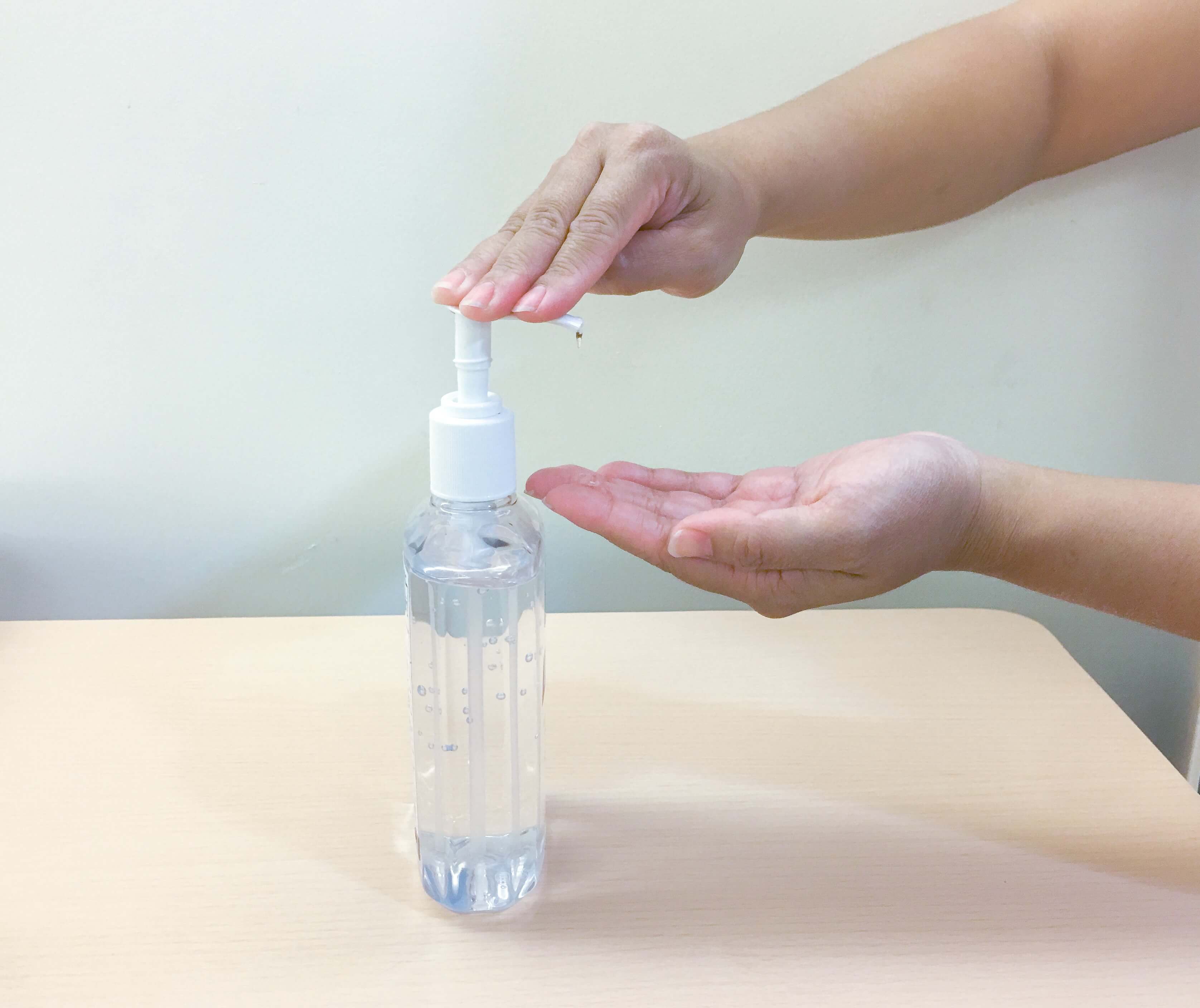Hand sanitiser is a much-coveted commodity at present. It has quickly made its way to the top of shopping lists across the globe, alongside toilet paper, bread, and milk. Some stores have even adopted a one bottle policy wherein customers cannot buy a second bottle, as well as some stores raising the price of a second bottle significantly to deter customers from stockpiling.

Why is Hand Sanitiser now in High Demand?
This, of course, coincides with the recent spread of the Covid-19 virus. As the population quickly grapples to adapt to the consequences of the outbreak, they seek to heed the advice of medical professionals. This advice has stressed the importance of following basic hygiene procedures to minimize the risk of infection.
- Healthcare officials have first and foremost stressed the importance of handwashing for 30 seconds with soap and water, which effectively removes a very large percentage of bacteria.
- The use of alcohol-based hand sanitisers is also encouraged in addition to hand washing.
These guidelines are to be followed in conjunction with the following:
- Social distancing or maintaining a 2-meter distance from others.
- Sneezing or coughing into your elbow.
- Avoid touching your eyes, nose, and mouth to avoid contagion.
Why is Hand Sanitiser So Important?
Health officials have outlined, along with handwashing, that alcohol-based disinfectant gels are highly effective at reducing the risk of viral and bacterial contagion if water and soap aren’t readily available.
Most hand sanitisers contain anywhere from 60% to 95% isopropyl or ethyl alcohol mixed with water and gels like glycol and glycerin in order to prevent drying out users’ skin.
The high percentage of alcohol present is what effectively fights the contagion.
The Covid-19 virus is an enveloped virus. This means that the RNA (the viral genetic material) is coated in a fatty lipid layer. Soap is able to dissolve this lipid layer, causing the virus to fall apart and stopping it from binding to our cells. Alcohol-based hand sanitisers such as Wicklow Way Wines 70% Hand Sanitiser work in a similar way,inactivating the virus by breaking down the lipid layer. This Irish-made hand sanitiser is available at 123ink.ie.
Naturally, the use of hand sanitiser gel is most prominent in the medical industry where staff are most prominently exposed to viral and bacterial infections. As well as continuously washing their hands, it allows them to frequently apply the disinfectant gel as a fast solution when entering or leaving any room, or when coming into contact with any surface.
The general population has, of course, followed suit since Covid-19 has altered their everyday lives. It offers some extra security to carryan antibacterial gel that can easily be applied throughout the day, minimising the risk of contagion.
This is particularly important as we look to the future of workplace hygiene as lockdown measures begin to ease.
Hand Sanitiser and The Workplace
The current epidemic puts hand sanitisers into focus. This disinfectant gel should be seen as a necessary product in society, not just in times of crisis.
We as a society are continuously battling with some form of viruses and bacteria, such as the annual flu virus. As lockdowns begin to ease across the globe, it allows us to rethink our spaces, such as our workplaces.
Workplaces can be a hotbed for germs and bacteria. Employees may still feel the need to turn up and do their job despite having a case of the sniffles. This puts other employees at risk of catching the virus.
By providing employees with access to hand sanitiser, it can reduce the likelihood of illness in the workplace. Employers can place hand sanitisers in strategic locations such as entrances and exits, kitchens and break rooms, meeting rooms, employee desks, and bathrooms. If it is easily accessible and in sight, it will encourage people to use it and help prevent the spread of infections.
The Future Use of Hand Sanitiser
The current demand for hand sanitiser was triggered by the fear of catching and spreading the Covid-19 virus. However, it may encourage a greater mindfulness for habitual use of this disinfectant gel. It has an important place in our work and leisure spaces.
It makes perfect sense to uphold these standards of hygiene in areas where our population is most at risk of catching and spreading infections to one another. It is not just hospitals that can benefit from having hand sanitiser available in each room. This should be every workplaces’ priority for the health and safety of their employees. This, in conjunction with handwashing, can help to minimise the risk of contagion.






